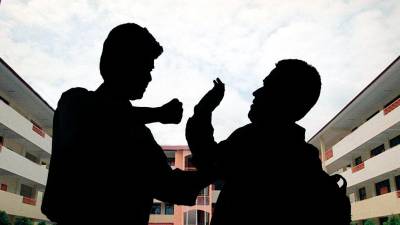PETALING JAYA: A child-friendly complaints portal, an initiative by the Parliamentary Special Select Committee, will not be enough by itself to shield children from being bullied, said CRIB Foundation co-chairman Srividhya Ganapathy.
She urged lawmakers to move beyond digital fixes, and establish a single, nationwide anti-bullying policy covering all schools – government, residential, private, international and religious.
“Right now, different schools fall under different ministries and agencies. So, policies are inconsistent. But bullying cuts across all types of schools. It should be treated with the same seriousness as fire safety or crime prevention, with one common standard.”
Srividhya said many children do not have personal devices while others face language or ability barriers.
“Phones are often confiscated by parents as punishment. That’s the reality.”
Through its youth initiative, the Talisman Project, the CRIB Foundation found bullying to be widespread, with many students reporting at least one experience of being targeted. Some said they retaliated and were then branded bullies themselves.
Srividhya said the most damaging type of bullying takes place online, where harmful posts vanish quickly unless children know how to preserve evidence.
CRIB has made three key requests to Parliament:
– A single national safeguarding and anti-bullying standard across all school systems;
– Minimum, enforceable requirements such as trained safeguarding teams, qualified counsellors, clear reporting channels, secure records and firm response times; and
– Funding and oversight, including a dedicated budget for counsellors and training, with schools required to publish yearly safeguarding reports.
She said the portal must trigger real-world action and be embedded within schools’ safeguarding systems.
“An app is a tool, not a solution. What matters is who receives the reports, how quickly they act and whether children feel safe coming forward.”
Beyond technology, CRIB’s blueprint recommends safeguarding and anti-bullying teams in every school and counsellors with manageable caseloads.
She said cases involving physical harm must be treated as crimes under the law, not dismissed as “child’s play”.
“At the same time, both victims and perpetrators, often children themselves, must have their identities protected under the Child Act, with restorative approaches used where possible.”
Srividhya also cautioned against measuring success by portal usage alone.
“A good system separates reporting from prevalence. If reports rise but repeat harm declines and response times improve, children are safer, not worse off.”
She urged schools to adopt clear benchmarks – acknowledgement within 24 hours, meeting within 48 hours, investigations within two school days and updates within five.
She said progress should also be tracked through anonymous student surveys and annual public reports.
She added that for the portal to be credible, cases must be logged securely in the Sistem Sahsiah Diri Murid, comply with the Personal Data Protection Act and include breach notifications within 72 hours.
Srividhya said offline reporting channels must also be provided, with forms available in Bahasa Malaysia, English, Mandarin and Tamil, using plain language, large text and simple icons as well as have screen-reader compatibility.
